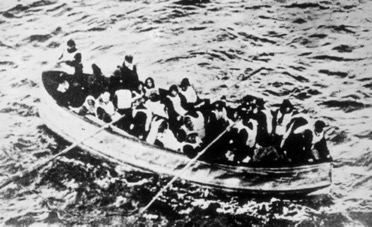Feyness

"The net result of learning should properly be a slightly higher class of cluelessness, never Feyness."
In the days when The Muse and I facilitated workshops, we studiously avoided introducing any sort of lifeboat drill-type exercises into the curriculum. These were the sorts of games requiring the group to expel someone from the group, the kind of "play" we commonly see on so-called reality television programs. We never believed that these simulations very accurately portrayed real-world situations. Quite the opposite, we thought them suggestive of tactics relatively useless in anyone's real world workplace. Besides, they tended to make the learning space unsafe, and our primary watchwords for our workshops were, "Safety First." If we could not create a safe learning environment, we would be culpable for inhibiting deep learning, and nobody attends any workshop so that they can hold their facilitators culpable for inhibiting their deep learning. ©2018 by David A. Schmaltz - all rights reserved
Learning seems to require some sense on the part of the aspiring learner that they might have a decent chance of actually learning something, that they could not possibly leave the experience without having found something useful for themselves. We believed in the Learned If You Do, Learned If You Don't teaching philosophy, which insists that whatever happened in a session, some useful learning might be mined from the experience. Nobody even needed to fail at anything to learn something. Shortcomings were an individual responsibility to notice, and in a safe learning environment, people notice without anyone amplifying any personal embarrassment. Punishment tends to be more crime than effective teaching philosophy.
Above all, we wanted to avoid inducing Feyness in our participants. I first experienced Feyness, that deep conviction that I was already damned whatever I might do, in school, where the pressure to perform easily induced this response in me. My nemesis was a seventh grade French class, which I entered with great enthusiasm. In those days, languages were still taught by rote memorizing grammar, a technique now largely discarded in favor of more immersive techniques. I was a bonehead grammarian even in English, so I could't even draw on a foundation of understanding generic parts of speech. The labels further baffled me. I compensated by diligently hand writing down long passages from the text, hoping that the language might somehow seep in through my eyes if I stared at it long enough. As the term progressed, I felt ever further behind, eventually dropping out of the class after persistent stomach aches drove me into final submission.
Learning should be fun, perhaps it must be fun or better left unattempted. That French class was my first move toward preparing for a future in college, and failing that, I recognized that I would have no opportunity to attend college, which required two years of successful foreign language study as a condition of admission. I later tried German with similar results, though I did experience a few weeks of renewed hope when I began that course. Finally chucked from the lifeboat, the balance of my high school education became as exercise in masochistic patience, feyness. I was already sunk and I knew it, with no possible redemption. I graduated with no fanfare, adrift without a lifeboat into a chillingly certain future.
Some historians have speculated that the certainty of defeat further encouraged the Nazis to fight to the last soldier. Norsemen were careful to conquer without utterly vanquishing, for a fey enemy could inflict enormous damage to their victorious opponent. Overwhelming force, whether military or conversational, holds the potential to create a victory not worth celebrating. When a troll tromps all over some commentator, the troll takes it in the shorts. When no doubt presents itself, nobody can benefit from its presence. It seems we must leave some honorable out or nobody leaves.
Simply declaring, "You're fired," resolves nothing. It eliminates possibility, which should not be the purpose of any engagement. Acknowledging that we're all learning and that nobody holds the omniscient high ground can keep anyone's feet more firmly on the ground. I believe that we need to be gentle with each other, not because we're all tender snowflakes, but because we're each somewhat clueless; Clueless If We Do and also Clueless If We Don't. The net result of learning should properly be a slightly higher class of cluelessness, never Feyness.


